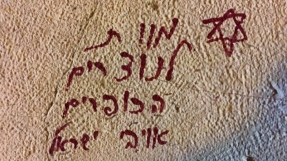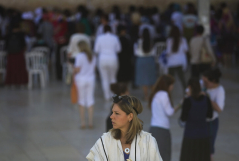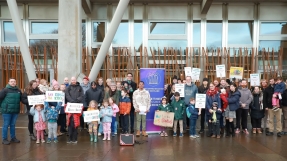
Palestinian Christians and Messianic Jews have released a statement affirming their unity as believers after a meeting in Cyprus.
Held under the auspices of the Lausanne Initiative for Reconciliation in Israel/Palestine, the conference aimed to bring together representatives of Christian communities that have widely differing visions of Israel.
Palestinian Arab Christians and Messianic Jews, who retain their Jewish identity while practising as believers in Jesus, are both minorities within their wider communities and can be regarded with suspicion and hostility. However, both are loyal to their national groups and share their fears and aspirations.
Alongside affirming the unity of Palestinian Christians and Messianic Jews as believers in Jesus, the Larnaca Statement recognises areas of challenge and theological disagreement. It calls for prayer and support from the wider family of believers.
It says: "In times of tension and violent conflict, relationships suffer, while suspicion, accusation and mutual rejection thrive. At such times it is even more essential that we who affirm our unity in the Messiah must uphold ethical standards of life that are worthy of our calling, in all our attitudes, words and deeds."
It also recognises that "we hold very different theological positions regarding the land, and also very different perspectives on the causes of the social, political and economic realities that impact the daily life of all who inhabit the land".
Nevertheless, it calls for "a generous theological stance, which makes room for and respects the conscientious convictions of others that they sincerely derive from their reading of Scripture" and for "every effort to maintain our fellowship with each other as a witness to the unity of the body of the Messiah and to the boundless love of God for all people".
The statement laments "the dividedness and divisiveness of our churches and organisations" and says "We will refuse to denounce, dehumanize, or demonise one another or our respective communities."
It says that the "historical narratives" of Messianic Jews and Palestinian Christians are "often in conflict with each other and in many cases are mutually exclusive, particularly in relationship to the events of the past 100 years and the establishment of the state of Israel and the events leading up to it".
While many Messianic Jews see the establishment of the State of Israel as a sign of God's faithfulness and believe its control over the Palestinian territories to be a part of God's promise to "greater Israel", many Palestinian Christians see the establishment of the State of Israel as a catastrophe for their people. The statement says: "They see the Palestinian refugee problem, the lack of equality within Israel, the ongoing occupation, and the expansion of settlements on Palestinian land, as illegal and unjust. They perceive their survival and duty to involve resistance to these injustices by peaceful, legal and non-violent means."
However, it says: "In spite of our different views, we commit ourselves to listen to one another, to learn from and respectfully challenge the narrative of the other, to critically evaluate our own narrative and to work towards an inclusive, bridging narrative."
Dr Munther Isaac, Palestinian Christian co-chair of the Initiative, said: "Despite our different convictions on many issues, we are able to affirm together the need for reconciliation, and to seek unity among believers across our divided communities. Our shared faith calls us to listen, respect and even challenge one another in a Christ-like manner. It also compels us to be advocates for reconciliation and just peace."
Dr Richard Harvey, Messanic Jewish co-chair, said: "It is important that a statement such as this is read and studied by Messianic Jews and Palestinian Christians, and all who pray for and work towards peace in the context of the Israel-Palestine conflict. Only by taking seriously the command of Yeshua (Jesus) to love our enemies can we begin to see the transforming power of His message of Good News in our lives and communities."

















